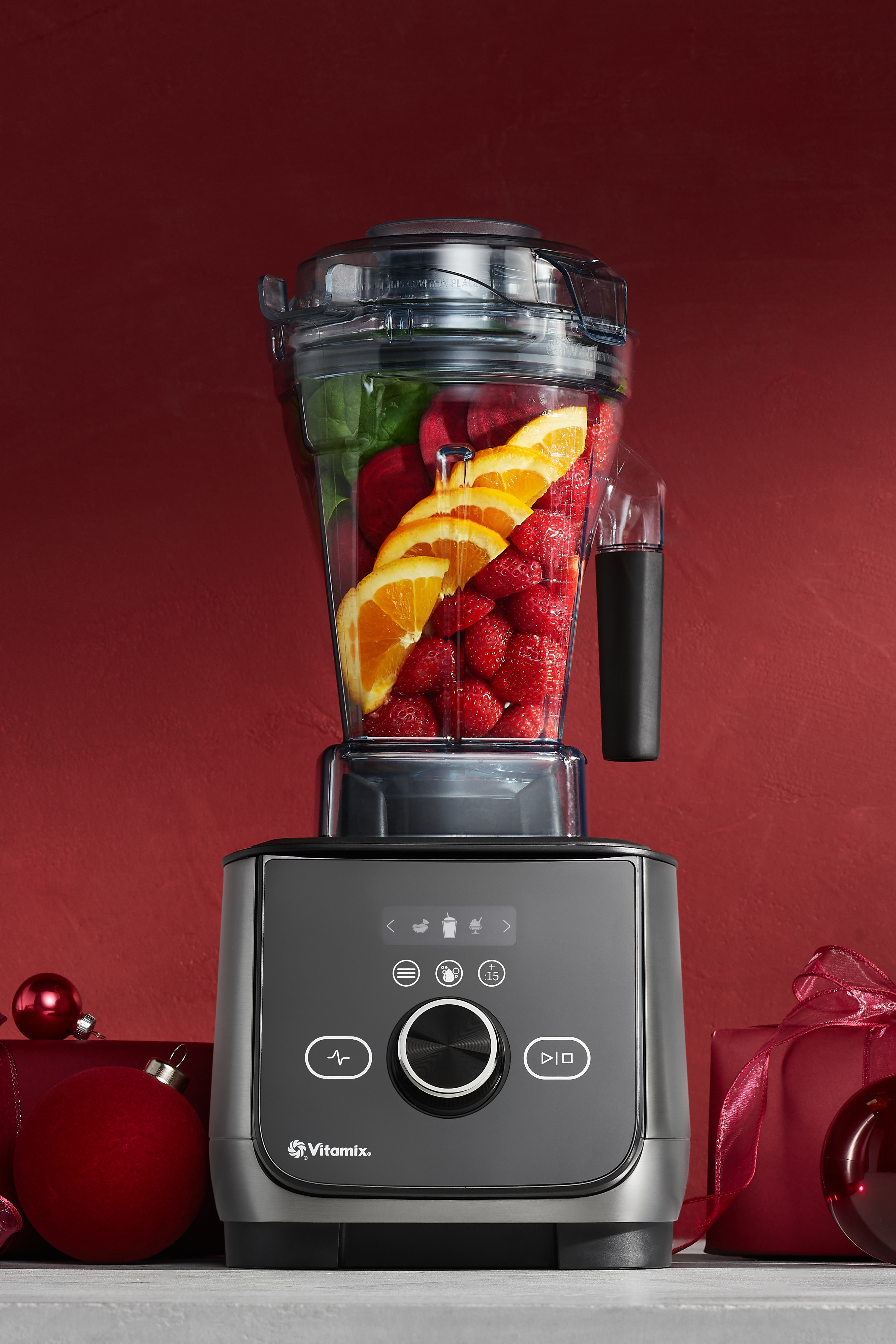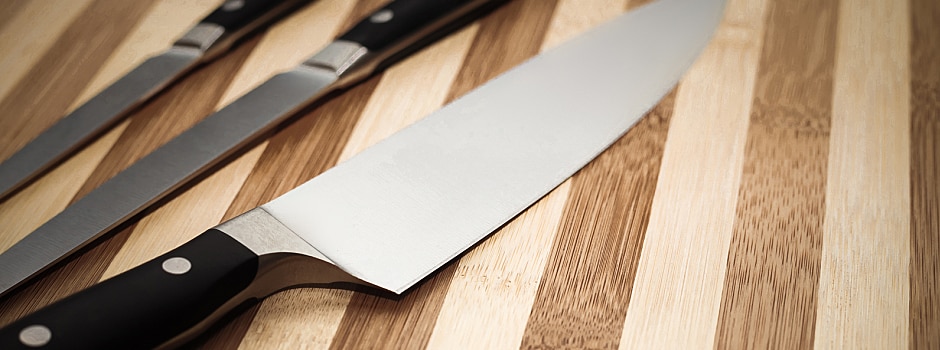Every good chef needs the right knives and tools in order to create the perfect dish. But what do you buy first? For a seasoned appraisal of what you really need, chef Farid Zadi offered some guidance. Aside from being a respected chef and restaurateur in his own right, the classically French-trained chef is a longtime culinary educator himself. Here's what he had to say about which chef tools you should purchase.
Start with a Basic Knife Kit
When you're just starting out, your knife kit can be a lot simpler than you'd think. "My starter tool kit as a line cook was really basic," says Zadi. He had a good chef's knife and paring knife.
A chef's knife is the most essential part of your tool kit because you'll use it every day. A 10- to 12-inch blade is generally the most useful because long blades give more leverage when you're cutting heavy items. However, some cooks prefer a lighter, nimbler 8-inch chef's knife or Santoku.
Paring knives don't get a lot of love and attention, but a good one makes preparation and fine-detail work a lot easier. It should be short—no more than three to four inches—and have a thin, flexible blade.
Choose Your Knives Carefully
In the early stages of your career, when your workload is heavy but your paycheck is light, buy your knives for function rather than style. Vendors of high-end knives will make the (legitimate) point that they're a lifetime investment, but you can wait until your career has launched. A full set of utilitarian knives will be more useful to you than one or two exquisitely crafted ones, and they'll be less likely to disappear during your shift.
Choose a knife that feels good in your hand and has handles that won't slip when your hands are wet or covered in grease. Durable, textured plastic grips are not fancy looking but are often the most practical. The blades themselves come in multiple varieties of steel, as well. Some cooks prefer stainless-steel blades for their durability, corrosion resistance, and low-maintenance nature. Others prefer carbon steel, which must be cared for diligently because it can corrode, become discolored, or chip if handled carelessly. Ultimately, which blade you choose boils down to personal preference.
Consider These Other Useful Tools
Aside from basic knives, you'll find that having a few other chef tools is helpful. Here are some ideas:
- A Whetstone and Honing Steel: Sharpening your own knives is not mandatory, but it's a useful skill, and it means you'll always have beautifully sharp blades without having to pay a professional. A good whetstone is a solid investment, and a honing steel will help maintain your edges between sharpenings.
- A Peeler: Even if you're really good with a paring knife, a peeler can be faster and neater for many jobs. Having your own will keep you from getting stuck with whatever's left in the kitchen.
- A Serrated Slicing Knife: Even when your chef's knife is at its sharpest, some foods—ripe tomatoes and fresh bread come to mind—are best cut with a serrated knife. It's not an essential tool, but it's definitely useful.
Remember That You'll Accumulate Knives, Tools and Skills
If you start with just the basics, you'll find that the extra knives you accumulate provide a visual history of your career. "I started adding to my knife kit as needed," Zadi recalls. "Later on, I added boning knives, one for fish and one for meat, and I have multiple peelers, cheese knives, oyster shuckers, microplanes, Japanese knives, a Chinese cleaver, a saw for butchery, shears, etc." He went on to explain that he has a big kit because he teaches cooking classes and offers cooking demos.
Use these tips to purchase the essentials, but also remember that some of the most valuable chef tools aren't visible. It's also important to have a desire to constantly learn and improve. Seize any opportunity to learn and use whatever specialized equipment is provided in your workplace, from high-powered blenders to programmable, steam-injected ovens. Coupled with the right knives and other basic tools, you'll be well on your way toward being a great chef.
Related Articles

Social Media for Restaurants: All Your Questions Answered
Creating social media for restaurants doesn't have to be overwhelming. Follow these simple tips to establish a successful strategy for your business.

Advice for the Aspiring Chef: How to Earn Respect in the Kitchen
If you're an aspiring chef who's trying to earn respect in the kitchen, here are some tips from industry veterans.

7 Things You Should Never Do During a Chef Interview
Whether you're trying to get your foot in the door or you already have a chef interview, here are seven things to avoid doing—and what to do instead.



